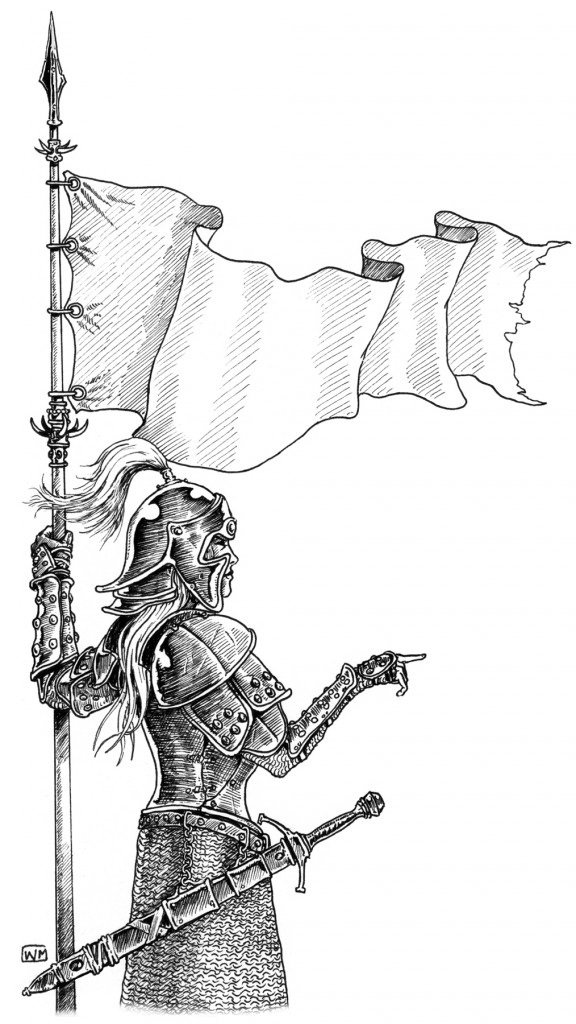In victory or defeat, every campaign must end. But in the same way as the manner of a hero’s death is important, the way in which a campaign ends is just as important as how it begins.

I’ve previously talked about preparing for and starting a new campaign, so it seems natural to talk about ending a campaign. After all, all campaigns end. The manner of the ending, though, can be as important to participants’ enjoyment as the beginning.
Unplanned Endings
Campaigns can end accidentally for many reasons:
- Hitting Pause: Sometimes the end of the campaign is not the end of the campaign. Perhaps the GM needs to take a break or some of the participants are away at school or on extended holiday. There is nothing wrong with taking a break for a bit.
- Fade Away: Sometimes it becomes obvious a campaign is slowly dying. People move away, lots of characters die or the players (or GM) simply fancy a change. It’s pointless to keep playing if enjoyment levels are waning and a GM should be courageous enough to accept that conclusion.
- The “Oops” Ending: Another aspect to consider when pondering the end of the campaign is what to do about character death. Character death is an inevitable part of the game but sometimes a character’s death can have serious consequences to the storyline. A GM should thus give some thought to handling such events. This is such an important potential consequence of the game the GM should decide on his strategy before the campaign begins. Is he going to gloss over death and make resurrection or the like easy to get hold of? Must a player start a new character and if so at what level? What happens if more than one PC dies or even if the PCs suffer a dreaded TPK?
Planned Endings
Luckily, not all campaigns end accidentally and a sensible GM gives some thought to his campaign end strategy:
- Plan The End: When you start a campaign it is a good idea to know how and when you want it to end. In the case of an adventure path or other series of connected modules, the campaign has a set endpoint – usually coinciding with the defeat of the threat, the death of the main enemy and so on. Other campaigns have no set goal, consisting merely of a vaguely-linked series of adventures that normally end when the PCs reach some kind of milestone (perhaps 20th-level or suchlike).
- The End Is Nigh (At The Beginning!): Often at the start of a campaign the players only have a vague sense of the endgame. You should provide them ahead of time with a rough idea of how long the campaign will last in real time and what level you expect them to reach. This crucial information enables players to make certain their own schedules can accommodate the campaign and also allows them to plan and customise their character concepts so they fit the campaign’s scope and style.
- The Conclusion: The end of a campaign shouldn’t be dreaded, but rather embraced. Hopefully, if things go well the PCs defeat the big baddie, save the kingdom or do something similarly noteworthy. Even if things go wrong, it doesn’t mean the campaign was a failure. Likely, everyone has had weeks, months or years of fun (and will leap at a chance for revenge if that villain ever turns up again!)
Help Fellow GMs!
Do you plan the end of your campaigns? Do things always turn out as you planned? Share your thoughts and experiences in the comments below and help your fellow GMs end their campaigns successfully!
2 thoughts on “GM Advice: How to End Your Campaign”